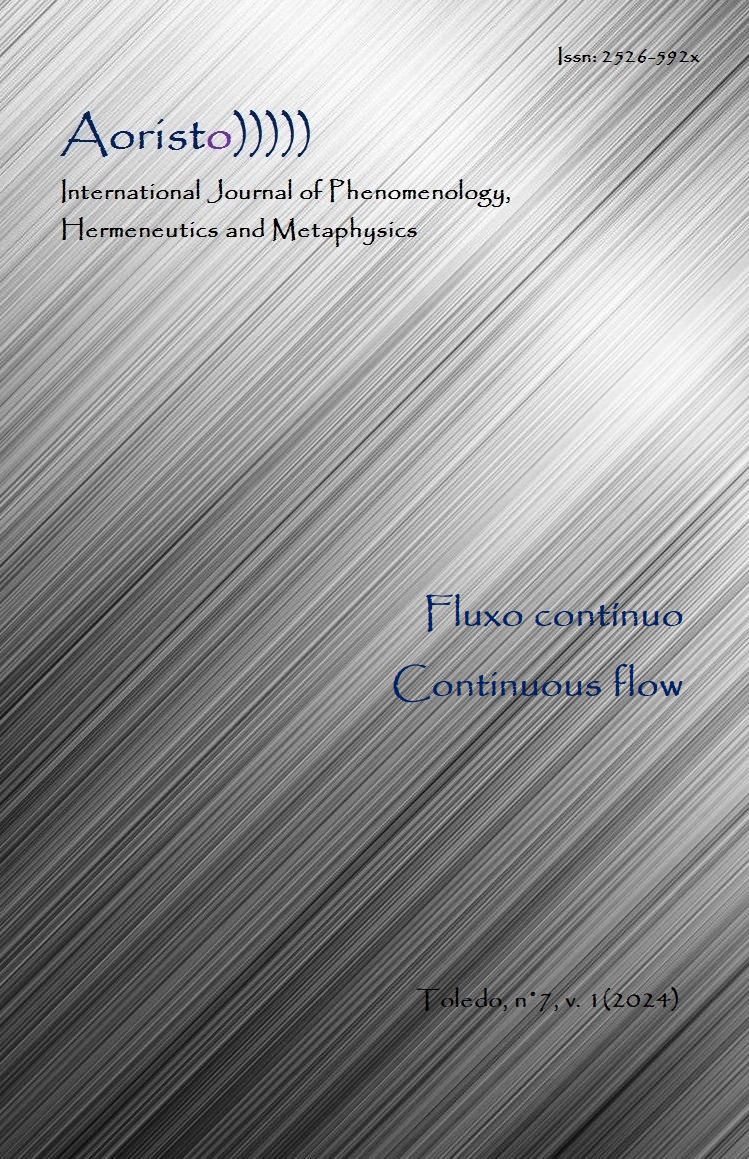Releitura fenomenológica de Hegel e Husserl sobre a consciência
DOI:
https://doi.org/10.48075/aoristo.v7i1.32725Palavras-chave:
Fenomenologia; Epistemologia; Consciência.Resumo
O presente artigo tem como objetivo investigar quais as diferenças epistêmicas entre a Fenomenologia do Espírito de Hegel e a Fenomenologia Pura de Husserl, possibilitando um comparativo de qual a relação entre a consciência de Deus nas possibilidades fenomenológicas. Inicialmente, o artigo se constitui pelos conceitos relacionados hegelianamente, que compõem a dimensão teológica de Hegel, realizando aprofundamento no modo como a consciência religiosa se presentifica e é vivida. Consequentemente, é abordado quais as questões essenciais que constituem a plataforma da fenomenologia pura, como um ponto de partida apresentasse a intencionalidade e a epoché. Como conclusão, nota-se que o que constitui desvio significativo em cada fenomenologia é em Hegel o conceito de Deus e em Husserl o conceito de intencionalidade.
Downloads
Publicado
Como Citar
Edição
Seção
Licença

Este trabalho está licenciado sob uma licença Creative Commons Attribution-NonCommercial-NoDerivatives 4.0 International License.
Copyright Notice
1. I grant the AORISTO – International Journal of Phenomenology, Hermeneutics and Metaphysics the first publication of my article, licensed under Creative Commons Attribution (which allows sharing of work, recognition of authorship and initial publication in this journal).
2. I confirm that my article is not being submitted to another publication and has not been published in its entirely on another journal. I take full responsibility for its originality and I will also claim responsibility for charges from claims by third parties concerning the authorship of the article.
3. I also agree that the manuscript will be submitted according to the Aoristo’s publication rules described above.
License Creative Commons
This work is licensed under a Creative Commons Atribuição-NãoComercial-CompartilhaIgual 4.0 Internacional, which allows you to share, copy, distribute, display, reproduce, in whole or in part, for as long as there is no commercial purpose, and authors and source are cited.


